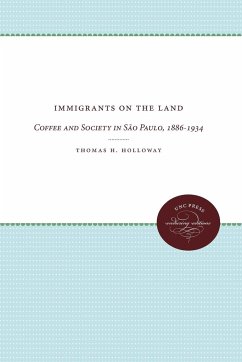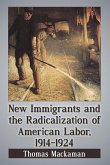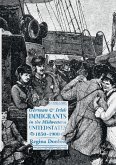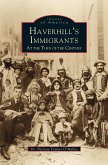When slavery was abolished in 1888, Sao Paulo, Brazil, subsidized the immigration of workers from southern Europe and Japan. Faced with a worldwide coffee market and abundant land for expansion, native planters developed a package of incentives to attract workers, in contrast to the coercive labor systems historically common in other plantation systems. By the 1930s a clear majority of the small and medium-sized coffee farms were owned by first-generation immigrants. Originally published 1980. A UNC Press Enduring Edition -- UNC Press Enduring Editions use the latest in digital technology to make available again books from our distinguished backlist that were previously out of print. These editions are published unaltered from the original, and are presented in affordable paperback formats, bringing readers both historical and cultural value.
Hinweis: Dieser Artikel kann nur an eine deutsche Lieferadresse ausgeliefert werden.
Hinweis: Dieser Artikel kann nur an eine deutsche Lieferadresse ausgeliefert werden.







